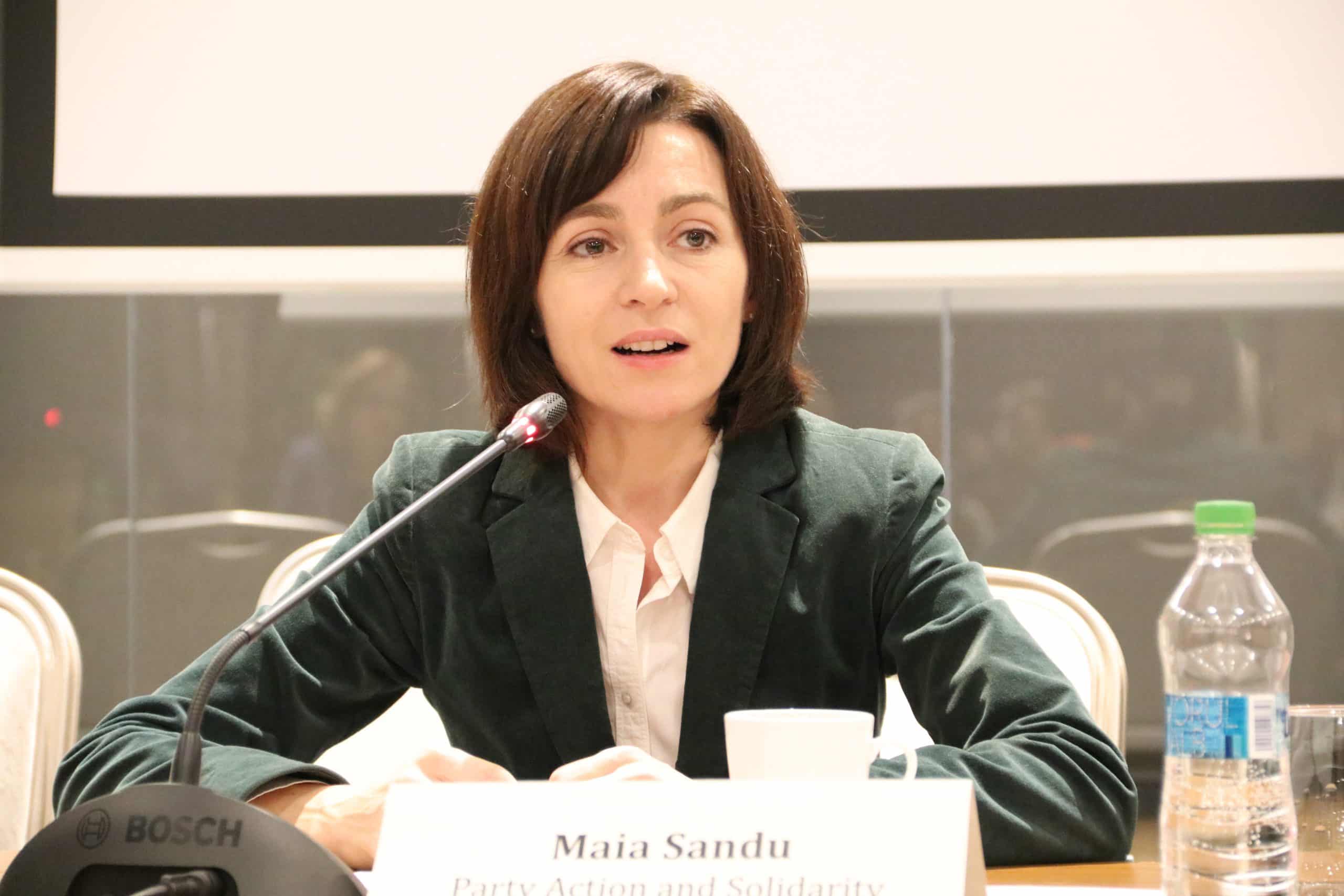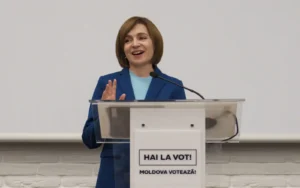On November 1st, Moldovans headed to the polls to vote in the first round of the 2020 Moldovan presidential elections. Maia Sandu, a pro-European candidate, came out on top with 36.1% of the votes. Second came incumbent president Igor Dodon with 32.66% of the votes. These two will now compete in a second-round run-off election on November 15th.
Choice for Moldovans
There were 8 candidates the 3.2 Moldovans eligible to vote could choose from in the election. It was clear from the polls that Igor Dodon, the current president who has close ties with Russia, and Maia Sandu, the pro-European former PM of Moldova, would take the lead. In third place came Renato Usatii, mayor of the city of Balti, with 16.91%. He was followed by Violeta Ivanov, from the Sor Party, with 6.5%. Then came Andrei Nastase with 3.26%, Octavian Ticu with 2%, Tudor Deliu with 1.37% and Dorin Chirtoaca with 1.2%.
Moldovan Diaspora
Around 150,000 votes were cast from abroad in the first round of the election, of which the large majority of votes were in favor of Sandu. Sandu has thanked the diaspora, stating that it was an “extraordinary mobilization.” Dodon, on the other hand, has argued that the diaspora forms a “parallel electorate” that is out of touch with Moldovan society. “They are in dissonance with the choices of the majority population living and working at home in Moldova,” said Dodon.
Irregularities
In the lead-up to the election, there were worries about foreign influence and in particular the role of the breakaway region Transnistria. A formal face-to-face meeting between the leader of Transnistria, Vadim Krasnoselsky, and Dodon in July raised suspicion that Dodon might offer concessions in order to win over voters. Sandu even sent a letter to top EU officials noting her concern over the amount of polling stations opened in Transnistria and Russia. On election day, Sandu and her party reported 300 complaints to the police. Among these complaints were suspicions of organized transportation of voters. In a close election such as this one, a few hundred voters could eventually make the difference between Sandu and Dodon.
In the lead-up to the election, Russia accused the US of preparing a “colored revolution” to oust Dodon. According to the head of the Russian intelligence service, the US would plan this because they are not happy with Dodon’s stances. Russian Foreign Minister Sergey Lavrov accused the US of “trying to establish absolute control in Moldova.” The US Under Secretary of State had a private phone conversation in early October with both Dodon and Sandu, asking them to ensure a “free and fair electoral process.”
The Organization for Security and Cooperation in Europe (OSCE), which monitored the elections, voiced overall approval of the election process, noting in their election report that campaigning was competitive and that the election was generally well-organized. The OSCE also noted that due to the allegations of vote-buying and organized transport of voters there were some road-blockages and tensions that interfered with voters’ freedom of movement. The EU stated that respecting all voters right to express their will is a fundamental principle at heart of the EU-Moldova Association Agreement.
Run-off election
Dodon and Sandu also ran against each other in 2016, when Dodon won with 52.29% of the vote. In 2019, Sandu also briefly served as Prime Minister in the coalition government that was formed after months of negotiations after the parliamentary elections and inaugurated in the middle of the 2019 constitutional crisis. Sandu’s government was ousted after a vote of no confidence, due to a draft law assumed by the government, and was replaced by a government by Ion Chicu.
Sources: Balkan Insight 1, Balkan Insight 2, Balkan Insight 3, Balkan Insight 4, Euronews, OSCE, EU
Photo: Flickr



